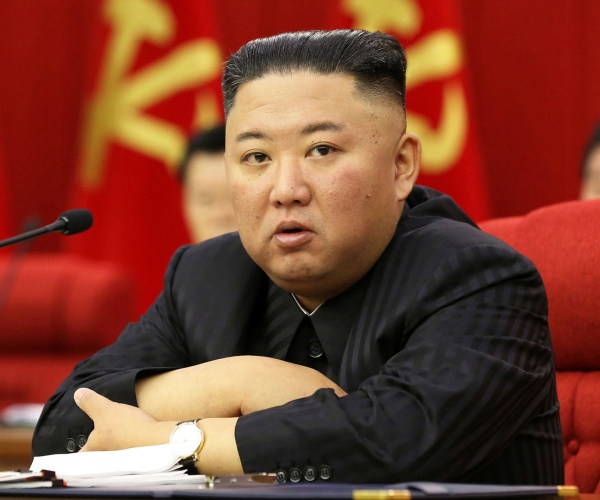North Korea appears to have launched its first ballistic missile in about two months, after leader Kim Jong Un indicated he was more interested in bolstering his arsenal than returning to stalled nuclear talks with the U.S.
North Korea fired what appeared to be a ballistic missile from land into waters off its east coast Wednesday, South Korea’s military said. The missile flew about 500 kilometers (310 miles) on a normal trajectory and landed in waters outside of Japan’s exclusive economic zone, officials in Tokyo said. The flight path suggests North Korea launched a short-range ballistic missile.
Japanese Prime Minister Fumio Kishida called the launch “extremely regrettable” and said his government would step up surveillance. North Korea’s most powerful ally, China, called on all parties to “act prudently” and stay in the right direction of talks and consultations, Foreign Ministry spokesman Wang Wenbin said at a regular press briefing in Beijing.
The U.S. Indo-Pacific Command said it was consulting closely with allies. “The ballistic missile launch highlights the destabilizing impact of the DPRK’s illicit weapons program,” it said in a statement, referring to North Korea by its formal name
South Korea’s presidential National Security Council convened and said in a statement it was “concerned” about the launch. The group called on North Korea to resume nuclear negotiations, which it said would help “resolve the current strain on inter-Korean relations.”
The missile was launched from Jagang province, South Korea’s military said. The location is near where Pyongyang in September fired off for the first time what it claimed was a hypersonic glide vehicle. Although South Korea said it believed the weapon was still in an “early stage” of development, that test suggested suggesting North Korea had come closer to putting nuclear warheads in high-speed gliders that can evade U.S. missile defenses.
North Korea has a habit of timing its launches to political events and the latest test may have been a rebuke of South Korean President Moon Jae-in’s renewed calls for reconciliation before his term ends in a few months. North Korea fired off its latest missile just hours before Moon attended a ground-breaking ceremony near the border for a rail line he hopes one day would help bring peace and connect the divided peninsula.
North Korea’s last major test came in October, when it said it test-fired a new type of ballistic missile from one of its submarines — a move that potentially reduces the time the U.S. and allied forces in the region would be able to deploy interceptors in the case of an actual attack.
The latest test-firing provided a reminder to President Joe Biden that Kim’s nuclear arsenal remains among the U.S.’s biggest foreign policy challenges. Pyongyang has given a cold shoulder to Washington’s invitation to return to the bargaining table, and last year accused the Biden administration of being “engrossed in confrontation despite its lip-service to dialogue.”
Kim told a policy-setting meeting of his ruling party that his state should focus on easing food shortages and containing Covid, the country’s official media said Saturday. That downbeat New Year’s assessment suggested the North Korean leader had little intention of returning to the nuclear disarmament talks that have been stalled for about two years.
Kim also sent a fresh warning to the U.S. and South Korea, saying he would continue to advance his military capability “vigorously,” amid an “unstable” situation on the Korean Peninsula.
As Kim marked a decade in power, pressures have been mounting at home, where the economy is now smaller than when he started his rule. His state is facing dire food shortages and Kim has made rare admissions economic hardships. The situation has been made worse by severe weather and Kim’s decision to shut borders due to the pandemic, effectively slamming the brakes on legal trade and the black market flow of foodstuffs from China.
After slowing down tests when Biden took office a year ago, North Korea returned to provocations in full force from September, increasing Kim’s leverage as he tries to ease sanctions choking his state’s anemic economy.
In the latter half of last year, his regime tested new long-range cruise missiles, and showed off a new system to fire ballistic missiles from a train. It also appears to have restored plutonium-producing operations and expanded a plant that enriches uranium for weapons.
(c) 2022, Bloomberg · Jeong-Ho Lee, Isabel Reynolds
{Matzav.com}
